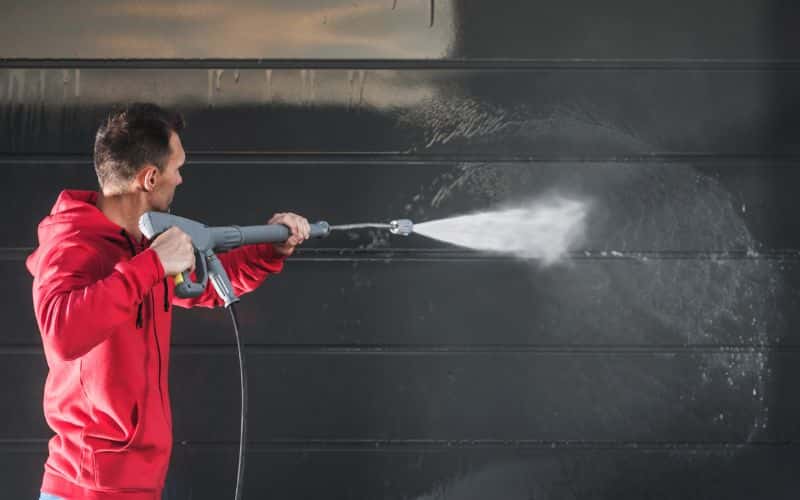Do You Need To Wash the Walls Before Painting?
Our expert team of skilled painters and decorators is here to bring new life to your home or business.
When preparing to embark on a painting project, washing the walls is one of the essential steps often overlooked. As a homeowner or DIY enthusiast, you might wonder, “Do you need to wash walls before painting?” The answer is a resounding yes. Properly cleaning the walls before applying fresh paint is crucial for achieving a flawless and long-lasting finish. In this article, we will delve into the importance of this pre-painting step and explore why ensuring your walls are immaculate before picking up that paintbrush is vital. Discover how Star Painting and Decorating Coventry recommends the proper techniques and products to ensure a successful painting.

Why Cleaning Walls Is Important Before Painting?
When it comes to painting the interior walls of a space, it is crucial to ensure that they are adequately cleaned and prepared before applying any fresh coat of paint. Dust and cobwebs can accumulate over time, making the surface uneven and less receptive to paint. A professional painter knows that proper painting prep includes thoroughly washing the walls before you paint. Washing the walls is the best way to eliminate any debris, dirt, or greasy residues that may have accumulated on the surface.
Doing so ensures a smooth and long-lasting finish for your paint job. Washing the interior walls before painting is essential to the preparation process. It provides a clean canvas for the paint to adhere to, resulting in a more professional and aesthetically pleasing outcome. So, whether you are a DIY enthusiast or hiring a professional, remember that washing the walls is necessary to achieve a successful painting project.
The Importance of Removing Stain, Dirt, and Grease: Preparing Walls
When giving our walls a fresh new look with a professional paint job, one crucial step often overlooked is preparing the surface. It is imperative to remove any stains, dirt, and grease before commencing the painting process. To ensure a clean and smooth surface, it is recommended to scrub the walls, particularly kitchen walls prone to grease and stains. Soap and water can eliminate most everyday grime, but tougher stains require a cleaning solution. If the walls are covered in wallpaper, removing any adhesive residue and ensuring a clean canvas for painting is essential.
Additionally, sandpaper can help remove imperfections and create a smooth surface. It is crucial to thoroughly wash the walls after scrubbing, as this will eliminate any remaining dust and grime. Gently rub the surface to ensure all residues are removed. If the task seems daunting, hiring a professional cleaner to ensure a pristine consistency before painting is advisable. By preparing the walls properly, one can achieve a flawless and long-lasting paint job.
The Benefits of Washing Walls Before Painting: Enhancing Paint Adhesion and Color Uniformity
Before painting a room, it is essential to prepare the walls properly; one crucial step is washing them and washing the walls before painting offers several benefits that can significantly enhance the overall finish. One significant advantage is improved paint adhesion. Over time, walls can accumulate dirt, dust, grease, and other contaminants, making it difficult for paint to adhere correctly. These substances can be removed by thoroughly washing the walls, creating a clean and smooth surface for the paint to bond.
This ensures that the paint will stick evenly and effectively, preventing any potential peeling or flaking in the future. Additionally, washing the walls helps to achieve better colour uniformity. It eliminates existing stains or marks on the walls, allowing the paint to apply consistently and providing a more even and attractive finish overall; taking the time to wash the walls before painting can significantly improve the longevity and appearance of the paint job, making it a worthwhile investment of time and effort.
How to Properly Wash Walls for Painting: Steps for a Clean and Pristine Surface
Properly washing your walls before painting is essential to achieving a clean and pristine surface. To ensure that paint adheres properly to the walls, removing any dirt, grease, or soap residue may be necessary. Start by gathering the required materials, such as a sponge, warm water, a bucket, mild soap or detergent (such as TSP or dish soap), rubber gloves, and clean water.
Begin by dampening the sponge with warm water and gently scrubbing the walls in circular motions. This will help to loosen any dirt or grime accumulated on the surface. Rinse the sponge frequently in clean water to remove dirt or soap residue. You may need a mild detergent or TSP to help clean the walls if there are particularly stubborn stains or grease spots. Be sure to follow the instructions on the cleaning product and wear rubber gloves to protect your skin.
Once the walls are clean, rinse them thoroughly with clean water to remove any remaining soap or detergent. Allow the walls to dry completely before applying paint. This is important as painting on wet walls can result in poor adhesion and a less smooth finish. If areas require sanding, use nonabrasive sandpaper to smooth the surface gently. After sanding, it is essential to clean the walls again to remove any dust or debris that may have been created.
Finally, it is recommended to prime the walls before painting. Priming helps the paint to stick better and provides a smoother and more even finish. Some major paint companies, such as Benjamin Moore, offer dedicated primers specifically formulated to enhance the adhesion of new paint. By following these steps and adequately cleaning walls before painting, you can ensure a clean and pristine surface for your paint to adhere to.
Common Mistakes to Avoid When Cleaning Your Walls: Tips for a Flawless Interior Painting Project
When it comes to giving your walls a fresh coat of paint, there are some common mistakes that you should avoid to achieve a flawless result. First and foremost, preparing the surface before you start painting correctly is essential. This involves using a slightly damp cloth to remove soap, dust, and dirt. Using a putty knife to remove grime is recommended if you have trim. To clean the walls, fill a bucket with warm water and mild dish soap. However, if your walls have been painted recently, you can skip this step and clear the wall of any debris.
Before you begin painting, it is crucial to dry the walls thoroughly. This will prevent peeling paint and allow the new paint to adhere correctly. If there is any existing peeling paint, it may be necessary to use trisodium phosphate to remove it. Additionally, if you’re painting over oil-based paint, you’ll need to wash the walls with a damp cloth and a solution of warm water and mild dish soap to remove grease or dirt. This will help the new paint adhere better. Finally, wipe the wall with a clean cloth or mop to remove any remaining residue, ensuring a smooth and clean surface for painting.
Conclusion
In conclusion, you are taking the time to properly clean your walls before painting is critical to achieving a flawless finish. Following these tips and avoiding common mistakes, such as not allowing the walls to dry or skipping the cleaning step altogether, will help ensure a successful interior painting project. Remember, the best thing to wash your walls with before painting depends on the type of paint you’re working with, so be sure to do your research and follow the recommendations provided by major paint manufacturers. You can achieve a beautiful and long-lasting paint job by taking the necessary precautions.
Get In Touch
Book Your Appointment
Contact Us
- +44 7479 277887
- [email protected]
- Coventry, United Kingdom
- Monday to Saturday 8 AM to 5 PM
- Get Directions




